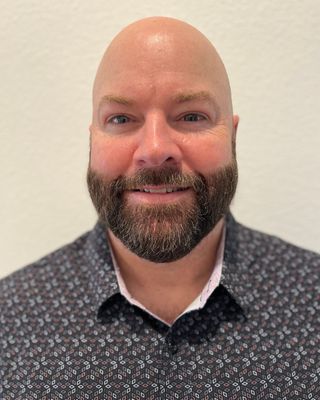Depression Treatment in Nashville, TN

Medically Reviewed
Medically Reviewed by Dr. Thompson
Last Updated on:
April 22, 2025
Table of Contents
- What is Depression?
- What Causes Depression?
- Types of Depression
- What is Depression Treatment?
- How to Know If You Need Depression Treatment
- How Long Does Depression Treatment Last?
- What is the Most Effective Way to Treat Depression?
- Facts and Statistics on Depression
- Long-Term Effects of Depression
- FDA Medications Used to Treat Depression
Begin Depression Treatment in Nashville
Arbor Wellness offers luxury mental health treatment in a safe environment to focus on healing and rebuilding.
At Arbor Wellness, our depression treatment in Nashville, TN, can help individuals reclaim and rediscover their lives outside of depression.
We offer both residential and intensive outpatient services to help people heal regardless of what level of depression they experience.
Learn more about Nashville mental health treatment or call us now at 629-217-2658.
What is Depression?
Depression is a mental health disorder classified as a mood disorder because it negatively impacts a person’s mood. Not to be mistaken for a temporary case of the blues, depression causes the individual to become trapped in a constant feeling of depression they cannot escape.
The results cause poor mental and physical health. Depression does not go away on its own, making it vital that someone who has it seeks the kind of help available at depression treatment in Nashville.
When depression overtakes a person’s life, they find it difficult to enjoy even the simplest of activities or plan for an exciting future. Regardless of the type of depression a person has, it impacts how they view their world and leaves them living without hope. The good news is that attending depression treatment in Nashville can vastly improve a person’s symptoms and help them rediscover the joy of living.
You are not alone. You deserve to get help.
Arbor Wellness is an industry leader in mental health treatment. Our team of top medical experts specialize in dual diagnosis treatment and are committed to ensuring that each patient is treated as an individual. Call us today, we’re available 24/7.
What Causes Depression?
Depression can happen for an easily identifiable single reason or a combination of factors. As well, a person can develop depression without being able to point to an exact cause. Genetics can play a part because a person who has a family history of mental illness has an elevated risk of developing a disorder like depression. Alternatively, a person may have faulty brain chemistry that leads to developing symptoms of depression.
For many, depression comes on as a result of experiencing something emotionally painful like abuse or childhood neglect. The person may have had a one-time event that led to depression such as being in an accident or having a serious health crisis. Finally, people who abuse drugs or alcohol often find that they become depressed as a result.
Our Nashville Depression Treatment Options
Depression treatment in Nashville takes place on a number of different levels. For those experiencing severe depression and who can benefit from moving out of their homes temporarily, residential care can be the right fit.
- Residential Treatment: Residential care gives clients 24/7 care in a safe, comfortable home-like environment while they concentrate on healing and stabilization.
- Partial Hospitalization Programming (PHP): Partial Hospitalization Programming is the highest level of outpatient care which take place during full-day sessions several days per week. During PHP clients may live either in a supportive housing environment or at home.
- Intensive Outpatient Programming (IOP): Intensive Outpatient Care is a lower level of care requiring clients to attend a minimum of nine hours of treatment programming per week.
- Dual Diagnosis Treatment: For those that struggle with depression and substance use disorder, our dual diagnosis treatment programs simultaneously treat both conditions at the same time.
How to Know If You Need Depression Treatment
Symptoms of depression occur in three different areas. Someone who feels exhausted, has trouble sleeping, or sleeps too much may be experiencing physical signs of depression.
They may also have medical symptoms with no other explanation, such as body aches, headaches, and digestive difficulties.
Emotional and psychological symptoms include being unable to pull out of depressive feelings, having cognitive difficulties, and finding it difficult to be around others. Additionally, the individual may have suicidal feelings.
Behavioral signs of depression include isolation from others and not being able to perform well at work or in school. The person may also lose interest in personal hygiene.
More: Take Our Depression Quiz
Types of Depression
More than one type of depression exists, making it important that a person receives a full assessment to determine which type they have. Programs like our depression treatment in Nashville treat all types of depression, which include:
Major depressive disorder: This is also called major depression and causes a person to live in a consistent state of depression.
Postpartum depression: A woman who experiences symptoms of depression for two weeks or longer after having a baby should be screened for this type of depression. However, it is possible for men to also have postpartum depression.
Dysthymic disorder: Also known as persistent depressive disorder, the individual will feel depressed most of the time but experience short periods where their emotions are elevated to some degree before returning to feeling depressed.
Seasonal Affective Disorder (SAD): This type happens during the fall and winter when the weather turns colder and there is less daylight. It can be triggered by other seasons, too.
Premenstrual Dysphoric Disorder (PMDD): Premenstrual Dysphoric Disorder (PMDD) is a severe form of premenstrual syndrome (PMS) that affects women during the luteal phase of their menstrual cycle and considered a depressive disorder.
Psychotic Depression: Some people have psychotic episodes as part of their depression.
How Long Does Depression Treatment Last?
How long depression treatment in Nashville lasts depends on a few factors. They include the length and severity of the illness, what symptoms the person experiences, and how they respond to treatment. Generally, residential care should last a minimum of 30 days, and outpatient care provides the best results when a person attends for 60 days or longer.
More on Depression
Effective Depression Therapies
Treating depression works most effectively when approaching it from two angles. The first is using prescription mental health medications that help reduce a person’s symptoms. The second is participating in more than one type of therapy that targets a person’s depressive symptoms and helps them develop healthy coping skills. Common therapies that help people overcome their depressive state of mind include:
- Psychiatry: Our Psychiatry services include medical evaluations, diagnosis (if netermined), and treatment of mental health disorders to improve overall psychological well-being.
- Holistic therapy: Our holistic approaches including yoga, meditation, nature w walks, and more create an approach that considers the whole person—mind, body, spirit, and emotions.
- Somatic Therapy: Our somatic therapy services incorporate body-centered techniques to address and heal trauma and emotional distress by focusing on physical sensations and the mind-body connection.
- Genetic Testing: Genetic testing for depression identifies specific genetic markers that can influence an individual’s response to antidepressant medications, creating personalized and effective treatment strategies.
- Biosound therapy: Biosound therapy combines biofeedback, music, and sound frequencies to create a therapeutic environment that for relaxation, stress reduction, and emotional healing.
- Red light therapy: Red light therapy uses low-level red wavelengths to enhance mood, reduce symptoms of depression, and improve overall mental well-being by influencing brain chemistry.
Facts and Statistics on Depression
Depression is a common mental health disorder in the United States. In fact, approximately 17.3 million adults have major depressive disorder. Other facts that show how depression impacts the lives of so many include:
- Rates of depression are higher in the LGBTQ+ community.
- 1.9 million children aged 3 to 17 have been diagnosed with depression.
- Over 20% of people who have a mood disorder such as depression also have an addiction to drugs or alcohol.
- Adults who have depression have a 64% greater chance of developing coronary artery disease
If You are in need of immediate assistance...
Don’t hesitate to contact us immediately. In the case of a medical emergency please contact 911 or visit your local emergency department.
Long-Term Effects of Depression
When someone goes without depression treatment in Nashville, they risk developing serious long-term effects. Left untreated, depression can tear apart romantic relationships and families. It can cause a person to lose their job, do poorly at it, or drop out of school. Long-term depression also increases a person’s risk of developing suicidal feelings. Another problem is having depression for a long time can cause a person to develop another mental health disorder like anxiety. It also increases their risk of developing physical health problems.
FDA Medications Used to Treat Depression
Using FDA-approved mental health medications can be a real game changer for people who have depression.
Discussing what symptoms a person has will help the prescribing physician recommend a type of drug to try.
The results will be monitored, and any changes to the dosage or med used can be made. The types of medications that help alleviate symptoms of depression include:
Selective serotonin Reuptake Inhibitors (SSRI): SSRIs increase the levels of serotonin in the brain. Common SSRI’s include:
Serotonin and norepinephrine reuptake inhibitors: SNRIs block the reabsorption of serotonin. Common SNRI’s include:
Anti-anxiety medications: Help reduce anxiety and sleeplessness that come with depression.
Mood stabilizers: Help reduce mood fluctuations and provide a more stable balance.
Antipsychotics: Help people who experience psychosis as part of their depression.
Begin Depression Treatment in Nashville Today
Have you lived with depression long enough and want to get the focused care you deserve? Arbor Wellness employs a skilled team of therapists who understand how to push beyond the wall of depression and teach people to become happier versions of themselves. Our depression treatment in Nashville offers people a variety of therapies that target their symptoms of depression. We also provide access to prescription medications that help clear your mind and make it easier to work on improving your symptoms.
Visit our admissions page now to find out more about getting started on our program. We look forward to answering any questions you have.
We Work With Most Major Insurance
Did you know most major health insurance plans with out-of-network benefits can help cover most of the costs associated with our program? Click below to find out your coverage and treatment options right now.













